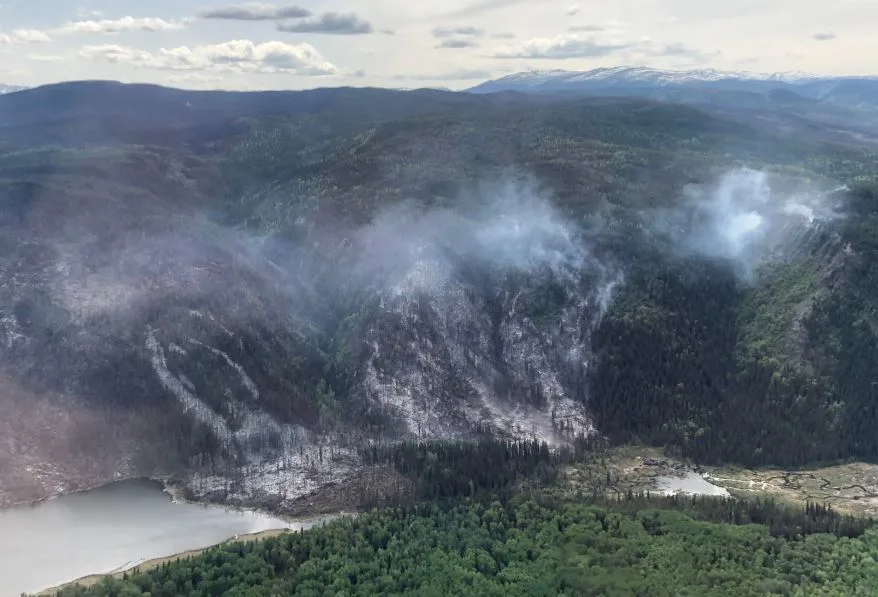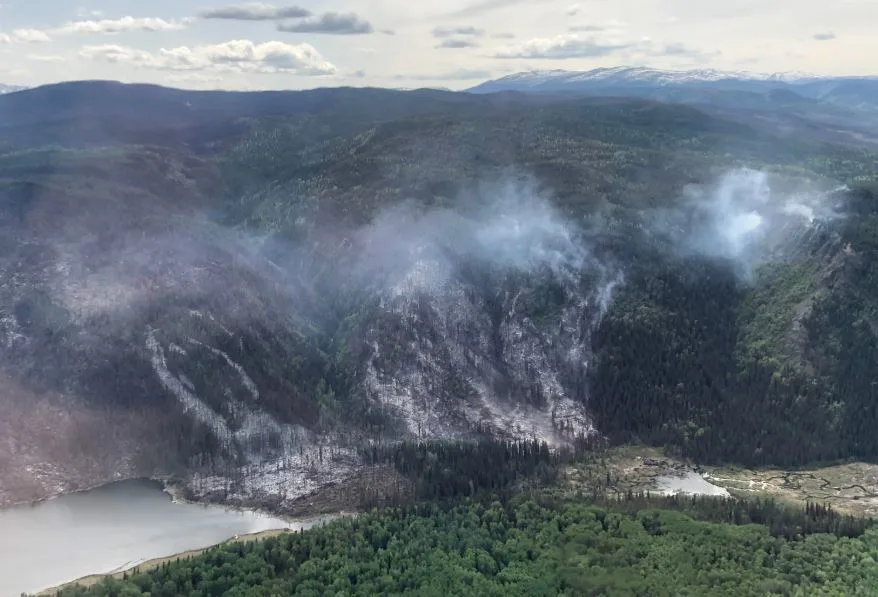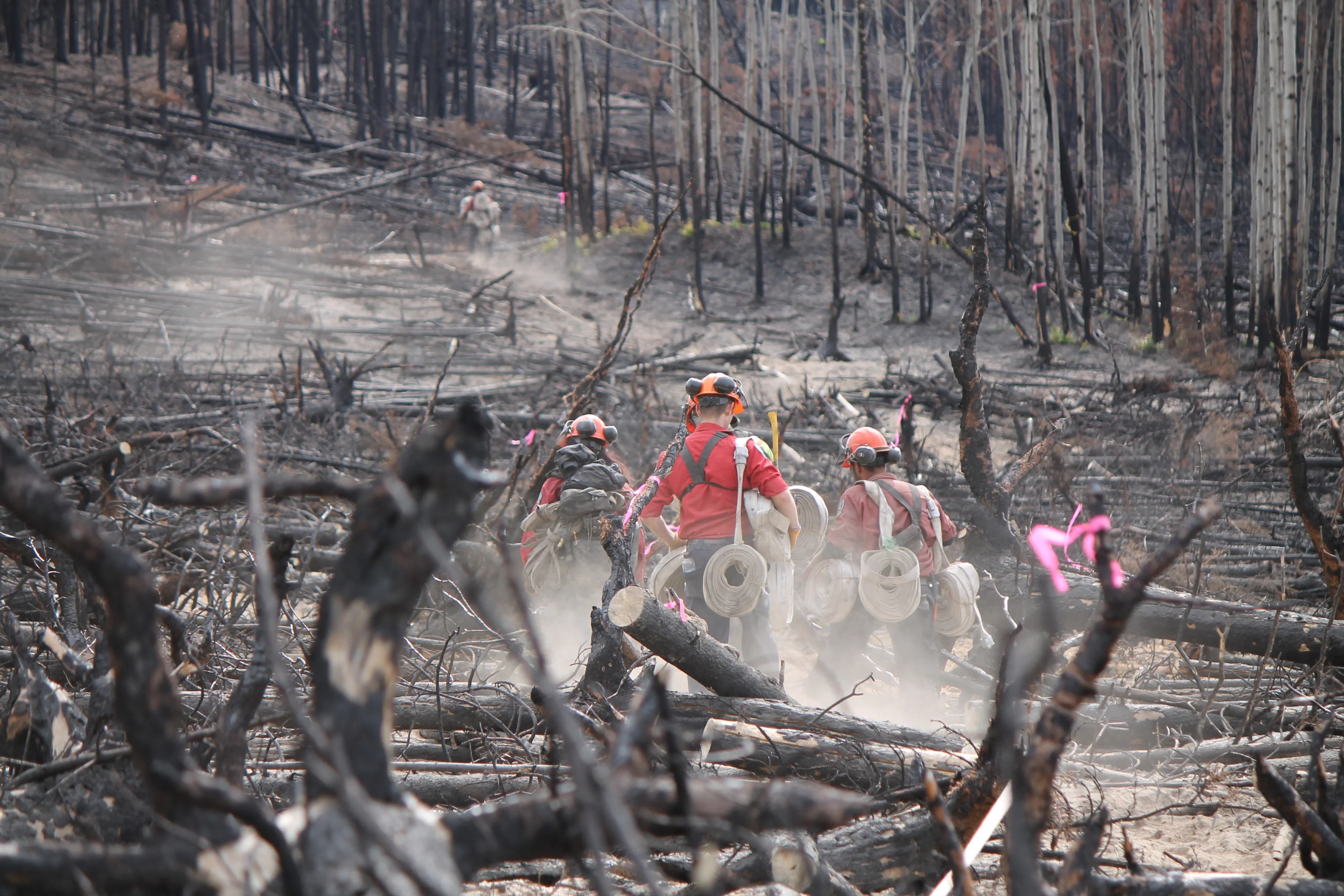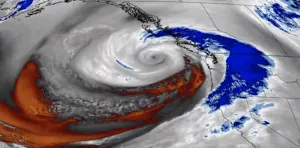
B.C.: One year later, one B.C. wildfire still smouldering
The fire is a holdover from the record-breaking 2018 season.
You know it was a bad wildfire season when one of its largest blazes is still smouldering well into the next year.
The B.C. wildfire service is just about set to take 2018's Alkali Lake wildfire off of its 'wildfires of note' watch list, a little more than a year after the destructive fire was discovered on August 1st, 2018. Burning some 7 km away from Telegraph Creek, the fire later merged with the South Stikine River wildfire and ended up burning some 121,215 hectares and triggering several evacuation orders and alerts.
Its lingering aftermath is what's known as a holdover fire, which are not uncommon in areas where the layer of duff -- partially and fully decomposed organic material between the soil and more recent 'litter' layer of fallen branches and leaves -- is relatively deep. After smouldering through the winter, they'll reemerge when temperatures are high enough and conditions are dry enough, something that happened in the Alkali Lake case.
"The 2018 Alkali Lake fire is the most serious case of holdover fires the Northwest Fire Centre has dealt with," B.C. Wildfire Service information officer Carolyn Bartos says, adding: "The reasons for this are the size of the fire and the extreme drought conditions caused by the hot, dry 2018 summer, dry fall, and low winter snowpack."

The Alkali Lake fire was just one major wildfire that made up the record-breaking 2018 season. Photo: B.C. Wildfire Service.
The fire was one factor in making B.C.'s 2018 wildfire season the worst on record. The more than 2,100 fires that sparked that year burned over 1.3 million hectares of land. Around 2,100 properties had to be evacuated, and though no fatalities were reported, the total cost of bringing 2018's wildfires to heel reached $615 million.
The weather played a major role in fuelling the fires. The wildfire service says record-breaking heat in late July went hand in hand with 'severe' lightning storms, with around 70,000 lightning strikes recorded between July 31st and August 1st (the latter date, incidentally, is when the lightning-caused Alkali Lake fire was discovered). Between those storms, and another 'extreme' lightning event on August 11th, firefighters had to grapple with almost 400 new fire starts.
Bartos said the Alkali Lake fire's sheer size last year meant holdover fires at the site were anticipated. The wildfire service flew reconnaissance flights over the area with an infrared camera to scan the ground, with extra air patrols of the area during periods of hot, dry weather.

Crews await helicopter transport after working on a holdover, visible in the background. Credit: B.C. Wildfire Service.
More than 150 firefighters were eventually deployed to the northwest of the province earlier this year, some of whom were assigned to suppress the Alkali Lake holdover fires when they showed signs of flaring up again. They were recalled in late June when the situation was deemed under control, largely replaced by remote monitoring devices according to the CBC.
Bartos says the public can report any sightings of smoke or fire by calling 1-888-663-5555 or *5555 on a cell phone.










